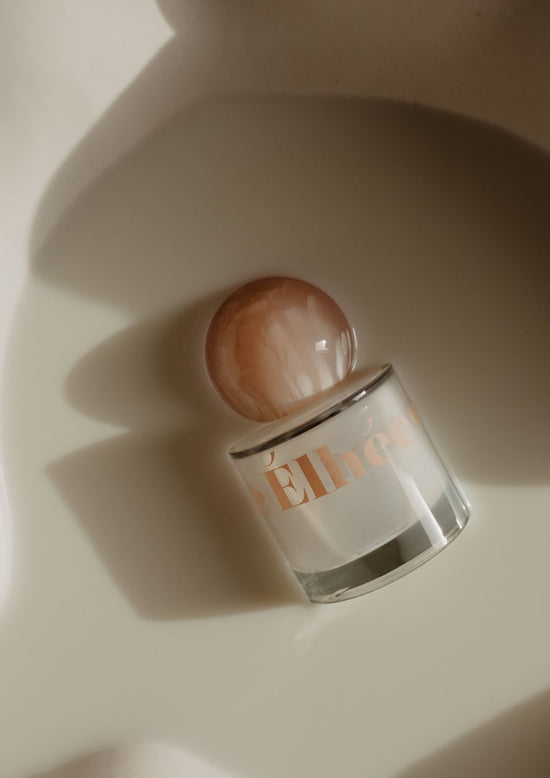Alice is the mother of Marthe, 3 and a half months old. After giving birth, she received two slaps in the face, the one of love and the one of postpartum. She would have liked to be informed, she would have liked to be told that the aftermath of childbirth can be so hard, can hurt so much. Alice opened her heart for the Journal d'Élhée and tells us in true and poignant words about her postpartum experience, which she shares with so many other mothers!

My postpartum and that of all mothers
” Marthe was born on December 14, 2020. The slap. The punch in the face. The sun in my life. His crooked smile, his big, amazed eyes, almost as much as ours. Its smell of orange, its smell of milk and all the indescribable things, all the things that pass through my body, my head. Joy, real joy.
The arrival of a baby and the tornado that follows. Emotional. Physical. If I didn't expect to feel so many new things, love, the pure, the one that grips the guts, visceral, that sometimes hurts the heart because it is so vivid, that makes hot tears flow in a bedroom. hospital, I also did not expect the suffering that follows childbirth. Postpartum. To everything that had not been said to me, everything that had not been told to me.
I spent hours glued to Marthe, in our room in the maternity ward, trying not to make her feel my pain too much, not daring to tell others, to smile when I was in so much pain. I did not know. I didn't know that you could have such discomfort when trying to get up after a cesarean section, I didn't know that I won't be able to urinate after the anesthesia, that I will wear a urinary catheter for three days, I won't knew what the trenches were, that you could still have contractions after giving birth, I didn't know that the drop in hormones could be so violent, so sharp. I didn't know you could have so much breast pain while breastfeeding. That the crevasses could be such. That distress, sometimes, gives way to dark days and we wonder when we will resurface. I spent hours feeling guilty for not knowing anything, stupid, alone. Hours of being afraid. Long minutes of looking at myself in the bathroom mirror, not understanding this belly that still looked like that of a pregnant woman, looking at my mesh panties, and all the blood that was flowing from me. I wondered why no one told me anything, why my mother didn't tell me anything, why women don't talk about this among themselves.
After giving birth, I had pancreatitis. Inflammation of the pancreas due to cholelithiasis. It's rare. What is less rare is the words of women who are not heard. My crises were immense. In the chest, in the back. I went to the emergency room twice. The first time, an intern gasped when I tried to tell him that I knew something abnormal was happening. When I tried to tell him about the fire in my body. The second time, I was told I was having anxiety attacks. I had to insist. Talk to my GP. To think that I was on all fours in my bathroom. That I felt like I was dying. That I was going to die if we didn't do something. I was finally hospitalized, far from Marthe, far from her smell, from her warm scalp, far from her skin and her breath, I lived for twelve days with a nasogastric tube, I underwent an ablation of the gallbladder. I felt like I had lost my body.
If pancreatitis is a personal experience, what is common is the absence of psychological help, the difficulty of the medical world in listening to women who say they are suffering, the abandonment of mothers during their postpartum period. I met kind people, wonderful midwives, magical nurses, my partner, my parents, my friends were of immense help, but I was alone, terribly alone.
It's not the women I blame. Not to my mother. Not to my friends. Not to this whole army of warriors who are asked not to talk too much about their suffering, who are made to understand that we don't really see what to applaud, when they are at home with the children, when they are busy of them, when they feed them, wash them, change them, educate them, who are made to understand that now that they have given birth, it's time for the baby, that their needs are less, that their health will wait. To them I send all the strength I can. To them, I say, let's talk among ourselves. Let's talk about our motherhood, our motherhoods. Let's talk about postpartum. Lets fight. ”


Find Alice on @alicepostpartum and discover the power of her words.
Photo credit: Legendre & Dève ©





